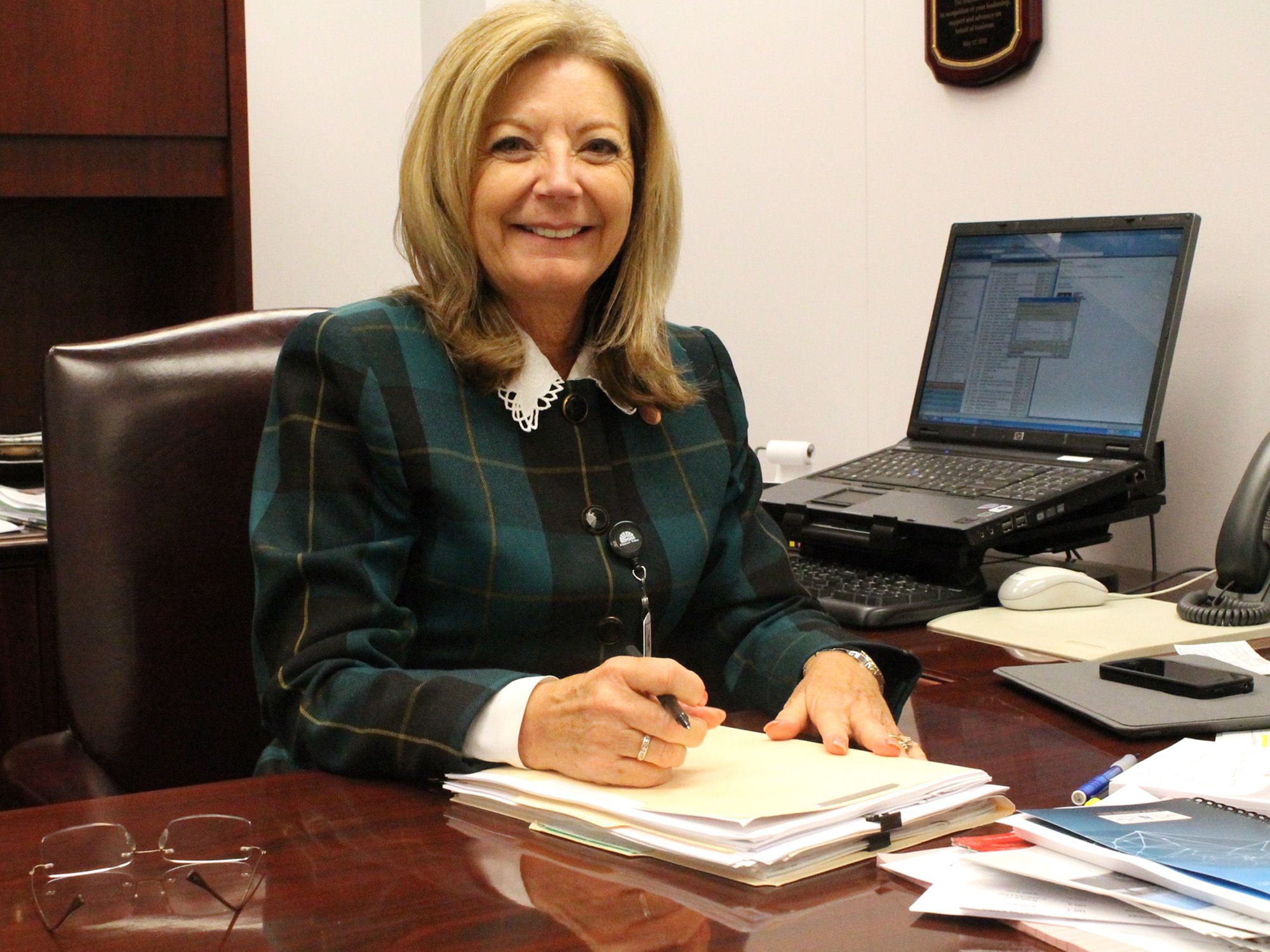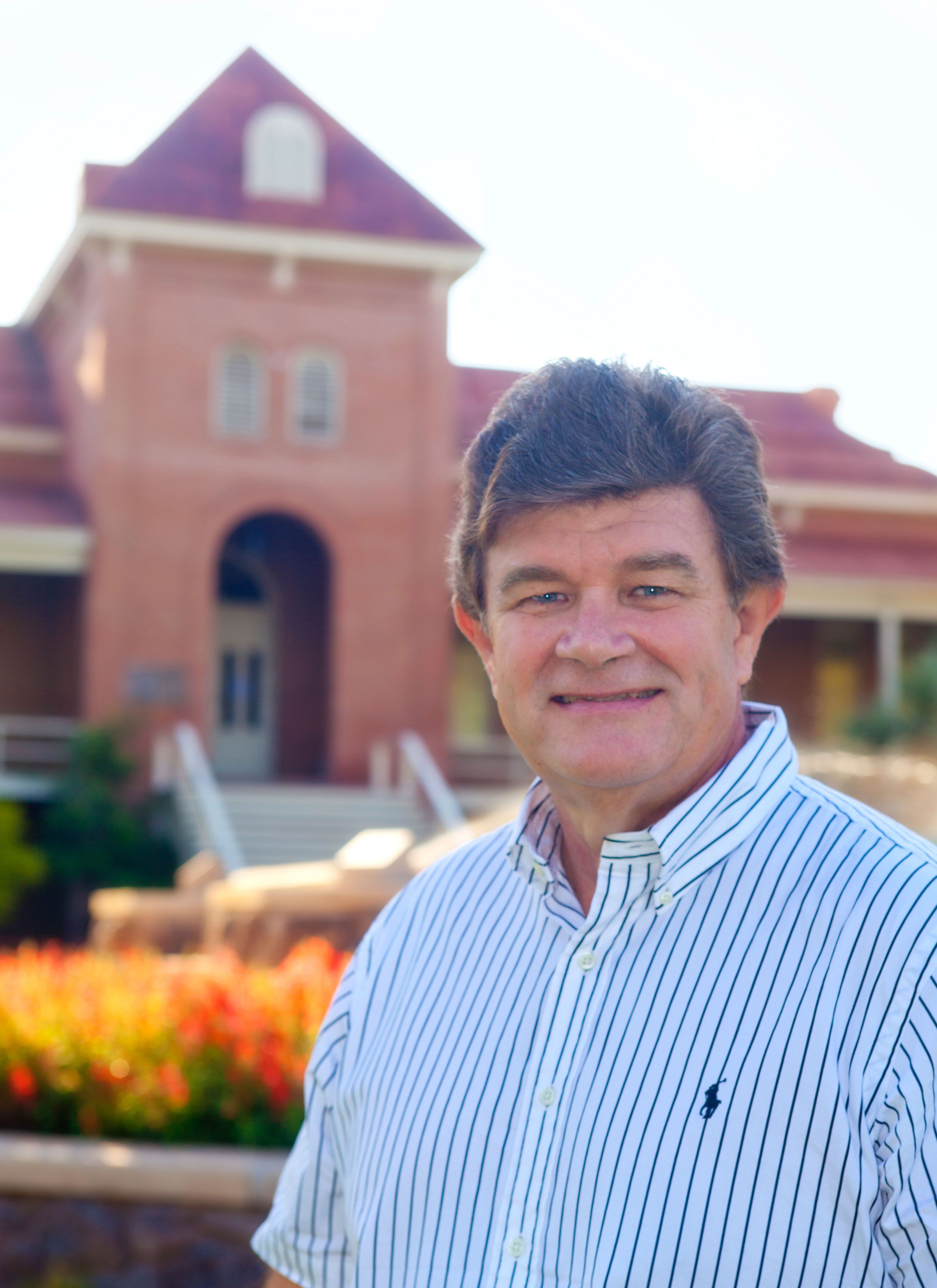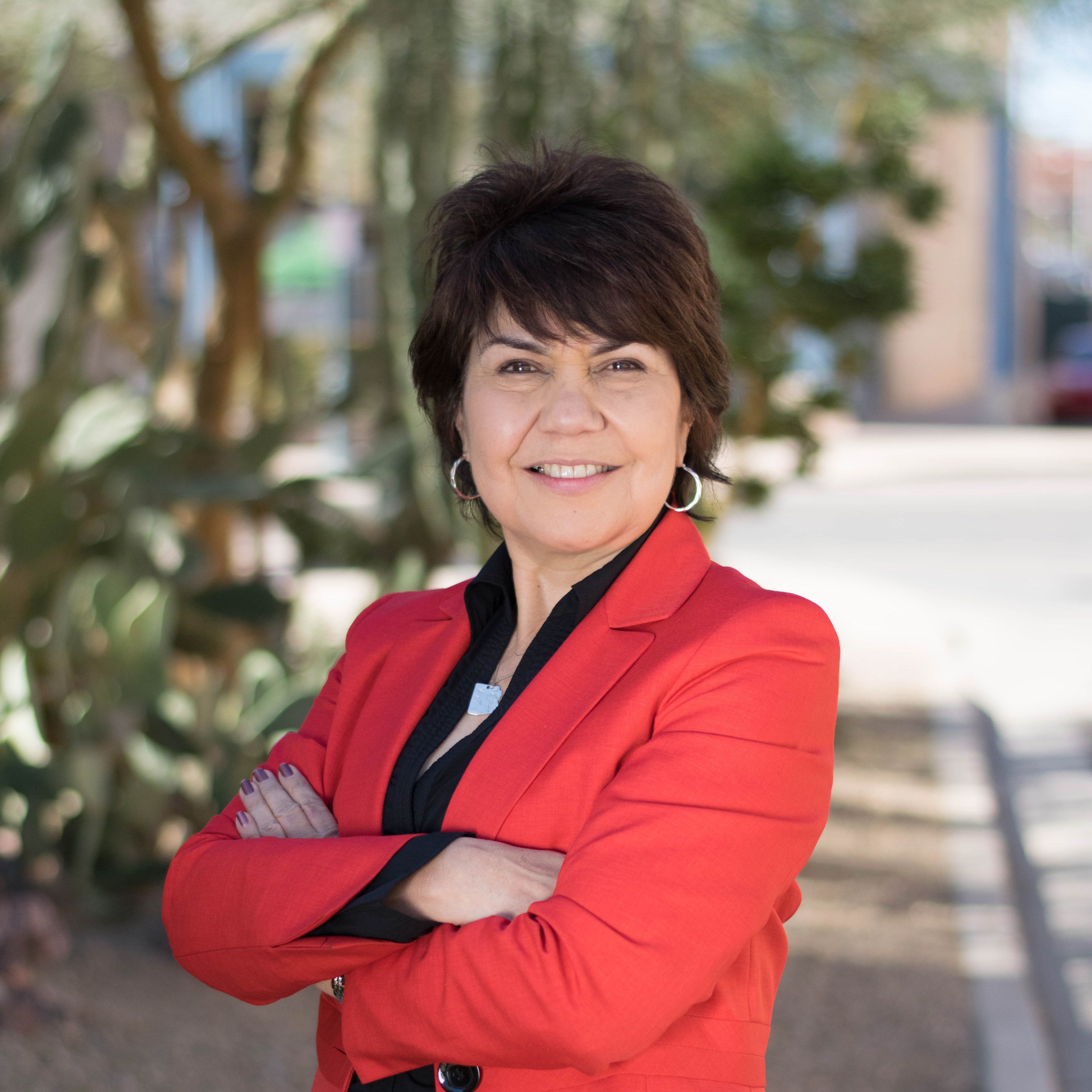Legislative Leaders Tell Us Their 2020 Priorities
Author
Published
1/21/2020
The 2020 legislative year is off to a fast start. Arizona Governor Doug Ducey gave his State of the State address and the new legislative session has begun.
As farmers and ranchers, we can appreciate what Governor Ducey said in his January 13 th speech about rural Arizona: “There’s no shortage of new jobs in Arizona — but many vital jobs remain unfilled in our rural communities. So, we’ve got a plan — a Rural Jobs Initiative.
“First, tourism and state parks. There’s no place more beautiful to vacation than scenic Arizona. And with an infusion of new dollars, we're going to work with Tourism Director Debbie Johnson to ensure the whole world knows it.
“Next, workforce. Small business is the backbone of our economy. So, we’re launching a partnership with Local First Arizona to strengthen small businesses, get rural Arizonans back to work, and bolster our local economies.”
Plus, the governor addressed connectivity in rural areas of Arizona: “We need to connect all parts of our growing state. Rural areas still lack high-speed Internet. Let’s triple our investment in Rural Broadband Grants, and also invest $50 million in Smart Highway Corridors to install broadband along our rural interstates. This will make our highways safer and smarter than ever before and pave the way to get all of rural Arizona logged on.”
The Arizona Farm Bureau is excited to see what unfolds overall, but we have our work cut out for us. “The 2020 Legislative Session is already off to a roarin’ start,” said Government Relations Director Chelsea McGuire. “Before the first five days were complete, legislators had filed a whopping 850 bills, more than most of us have ever seen by this time in the year.”
McGuire discusses this at length in one of the articles in the February 2020 issue of Arizona Agriculture. Be sure to watch for it when it drops in our agriculture members’ mailboxes.
Several of our farmers and ranchers were guests on the opening day of the Legislative session. Arizona Farm Bureau President Stefanie Smallhouse attended along with Sherry Saylor. Senator Sine Kerr, who dairies with her husband, Bill, in Buckeye is flanked in a nearby photo by Smallhouse and Saylor.
In the meantime, as we annually do, we asked the legislative leaders from each party to share their vision of the 2020 legislative year. Here’s what they said.

By Karen Fann (R-Dist 1)
Senate President
As we approach 2020, let's take a quick look back at 2019, and the challenges Arizona's rural areas face. The Legislature faced a daunting deadline to pass a Drought Contingency Plan to make sure our farmers and ranchers had the water they need to thrive, for the next decade and beyond. After weeks of meetings, hearings and votes, we got it done, in a strong bipartisan fashion, and on time.
An entirely new cash crop was created in 2018 in Arizona, as our state was one of the first in the nation to establish industrial hemp cultivation. This past session Senator Sonny Borrelli led the effort to move up the timelines, to make sure our hemp producers could get their crops in the soil. In 2019, the Legislature also facilitated new commercial growth within the agricultural sector, with a bill enabling agritourism activities. Senator Sine Kerr (a dairy farmer by profession) saw the need to establish a promotion program with the Department of Agriculture to fulfill national egg certification, inspection and grading services at the state level.
The most important work we do at the Capitol is putting together a balanced state budget. We've been hard at work since the summer, meeting with agency heads, listening to constituents and I've been sitting down with my colleagues, to find out what they think should be done to improve the budget. My hope is, by the time we reach Opening Day on January 13, we will be having a conversation between the Senate, the House of Representatives and the Governor's office, to craft the best possible budget for Arizona, including our rural communities. I grew up in rural Arizona, and I've been proud to serve as Mayor of two agricultural communities. I have a strong interest in your well-being, and I hope my second year as Senate President will build upon the successes of my first year.

By David Bradley (D-Dist 10)
Senate Minority Leader
Arizona as we know it began with industrious pioneers who figured out how to grow crops and raise livestock in the desert. They knew modern people couldn't exist here without water, so they learned how to utilize, and often fight over, every drop. Arizona's cities and towns couldn't have grown so fast and so big without the nutritious bounty produced by our farmers.
Agriculture is still one of Arizona's strongest economic engines, measured in billions of dollars annually, which is why we advocated for ensuring Arizona's farms have the water resources and infrastructure they need in negotiations for the Drought Contingency Plan that was adopted last session. Our Senator, Lisa Otondo from Yuma, who comes from a multi-generation Arizona farming family, represented agricultural interests well as a member of the committee that traveled the state hearing testimony and developing the plan.
Just as water needs infrastructure to get to fields and faucets, so do Arizonans need infrastructure to live and thrive. This is especially crucial in our rural communities where basic needs like roads, internet and healthcare can be difficult to obtain and maintain.
Last session our Senate Democrats took the unusual step of developing and proposing to our legislative colleagues a full state budget that represented our priorities.
One of those top priorities was a program to offer free tuition to the University of Arizona medical students who promise to practice in underserved rural areas for at least two years after they graduate. We recognized that rural Arizona suffers from a dangerous lack of primary care physicians and, fortunately, we found a few friends among our Republican colleagues who shared the urgency and worked with us to get this program funded in the final budget. As a result, 94 medical students will soon be graduating and providing family medicine in Arizona's rural communities.
As we prepare for the 2020 legislative session, we are developing another budget proposal that once again represents our priorities and that addresses the issues Arizonans are facing. It will make investments in the critical infrastructure of everyday life that only government can provide – not just roads and pipes, but services like education, healthcare and helping those in need get back on their feet.
The members of my caucus don't just represent the people of their districts, they consider the needs and best interests of all Arizonans in their decision making. That is why it's important that, if you have a problem in need of a solution or simply want to share your perspective on an issue, you reach out to us. We can better represent you when we hear directly from you so please get in touch at AZLeg.gov or AZSenateDems.com.
By Russell Bowers (R-Dist 25)
House Speaker
State Senate President Karen Fann, her husband, Jim, and I recently had the privilege of being invited to visit Rancho del Cielo, better known as the Reagan Ranch – the official personal residence of Nancy and U.S. President Ronald Reagan.
It was impressive for the simple and personal functionality, the beauty of the surrounding meadow, and the oaks that cradle the ranch house and few outbuildings. We were able to walk along the hundreds of yards of Reagan-built fencing, Reagan-laid stone patios, and Reagan-laid linoleum. Nancy had simple “butcher block” Formica, with an avocado stove and fridge, and a hand towel draped over the dish drainer. Their bed was two twin beds zip tied together with a foot bench and cushion on the security phone side to accommodate President Reagan’s feet when he slept, his “Head & Shoulders” brand shampoo still balanced on the top of the 24” square fiberglass shower (just like mine) encased in painted plywood steadied with two 2x4s up to the ceiling to frame the opening and hold up the shower curtain.
The Queen of England may have had a few comparative thoughts about these simplicities, and it was said that when former Soviet leader Mikhail Gorbachev commented on the lack of impressive finery of the place, the reply pointed out that he paid for his with his own money.
I was especially impressed with the tools still hanging in a homemade rack, and his four chainsaws, gifts of his son, that he used regularly, all laid out where he left them when his battle with Alzheimer’s finally forced Nancy to turn the key over to caretakers stating that they would never be back. The tack room was swept, and saddles hung under halters and bridles, and a black and white “winner’s circle” photograph, taken at Turf Paradise, recognizing an ownership interest in a horse that did well out at Turf, was hanging in a simple black frame. I have a photo like that, same place, different time, of my father, Wes, standing with other owner friends and the trainer, with Sendy’s Echo, smiling.
We had a final meal in the barn, where a chipper and tractor and other needed items rested on flattening tires, thinking of how the President kept hay for the Secret Service's horse separate from his than of his own horses. “I don’t want my horses on the government dole,” he joked. I couldn’t help but compare his choice of fence mending tools, hoof medicine, and cleaned peanut butter jars filled with screws, roofing nails, and staples to those in my shop and my father's. I also can’t help comparing his character to others through time and today…learning from mistakes, molding a vision of his service to friends and country, teaching his children, depending on divine help, and recognizing the same.
As we look toward this legislative session, and the hyper-politicized drama that will open soon, I can’t help but think that preserving things simple and true and foundational is important to what we should be doing. When I consider the two-bedroom house that my nine-member family lived in, and how blessed I am by comparison, I wonder – as President Reagan asked the country – will our children be better off than we are? Do they have a chance to be children, or be swallowed in angry agendas and political experimentation?
I hope to see a recommitment to what is simple and true. When I think of what that might mean, I think of people that have their hands in the soil and their faith in God. I close with the old saying, "Fame is a vapor, popularity an accident, riches take wings, only one thing endures – character."

By Charlene Fernandez (D-Dist 4)
House Minority Leader
In Yuma, where I was born and raised, the farming community not only drives ours and much of the state's economy, it is a driving force in our communities. You are the first to extend a hand during times of crisis, to step up for community and charitable causes and to sponsor local events.
Farmers are business people, of course. But more importantly, farmers are givers.
I am proud to represent the winter lettuce capitol of the world. Yuma produces 90 percent of the nation's leafy vegetables during the winter, and we'd like to keep it that way. Meat, dairy, grains, cotton, a truly outstanding and growing wine industry, nuts and dates and nursery plants are grown and raised throughout the state and provide food for Arizonans, the entire United States plus foreign exports.
But those industries face challenges and risks due to rising temperatures and sustained drought.
Our caucus is committed to work with you to keep our agricultural sector strong and stable for our economic future. That is why we – as part of our historic 2019 Drought Contingency Plan – negotiated significant dollars for research. If we are going to keep employing more than 160,000 people and generating $23.3 billion a year, we must get smarter and more innovative.
I am also proud to lead a caucus of 29 Democrats, the closest margin in the Arizona House of Representatives in generations. We are committed to working with you on a long-term agenda for Arizona where we:
- Invest in children for a healthy and sustainable future.
- Fight for great jobs and fair pay.
- Protect access to affordable quality healthcare.
- Build sustainable, innovative infrastructure and affordable housing.
- And protect our air, water and land for generations to come.
Arizona industries – especially our agricultural industry – cannot work if products can't get to market.
Our Democratic caucus strongly supports infrastructure investment that keeps roads, bridges, airports and ports of entry throughout our state in good repair. This investment will create jobs and better connect our rural, urban and tribal communities to growth and opportunity.
Additionally, support for Arizona's agriculture community not only fuels our economy, it contributes to good health and it helps the most vulnerable in our communities. We know that too many Arizonans in lower-income communities live in food deserts and don't have access to affordable fresh produce.
I hope to work with Republicans to extend and expand the two-year fruit and vegetable incentive program that we authorized in 2018. This program provides matching dollars to SNAP recipients to purchase Arizona-grown fruits and vegetables, including those sold at farmers markets and community grocery sites.
This will be a win-win for all of us and I look forward to discussing the program, as well as the rest of our agenda, with your members during the upcoming session.
Editor’s Note : This article first appeared in the January 2020 issue of Arizona agriculture.
Join Our Family